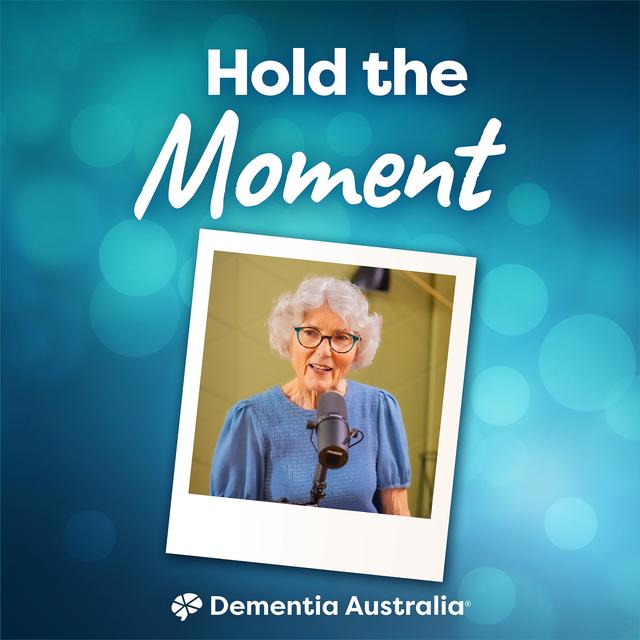[Music]
- Grief isn't something you can prepare for. It looks different for everyone. As a carer, it might be constant, or it could hit you out of nowhere. But when it does, figuring out how to cope can be the hardest part. Hi, I'm Jim Rogers and this is Hold The Moment. A podcast by people living with dementia and their families. You've probably just listened to our episode on 'Grief'. Where you heard Jenny talk about the waves of emotion that crash at many points of your experience with dementia.
If you haven't listened to that yet, pause this, and go and have a listen. But this episode features expert advice and tips from the National Dementia Helpline. The free helpline is available 24 hours a day. Every day of the year. If you call, you'll speak to an advisor, just like Kristen. - As a carer, you may find yourself feeling all sorts of feelings. You might find that you feel overwhelmed by sadness some days for no real reason.
Other days, you might be angry and, and you can't figure out why. These things are normal feelings that all of us feel. And as a carer, it can be really tricky to still do all the things that you need to do to get through the day while navigating all of these feelings. Sometimes, just describing how you're feeling and how things are going, can help things feel just a little more manageable.
When you give us a call and you're describing some of the things that you're feeling, you might be surprised if the advisor brings up the word 'grief'. You might be thinking, but my loved one's alive. I see them every day. I care for them every day. But something to think about, is that grief is about loss. And there's all kinds of different ways that we experience loss.
When you find out that your loved one has a diagnosis of dementia, sometimes that changes the way that the future's going to look, for you and your loved one. You might be thinking of all the plans that you had, and how that's going to change. That's a loss. And you might feel some of the feelings associated with grief. Even after your loved one who was living with dementia has died.
The helpline is still a place that you can call for support, to talk things through and to navigate how you're going to be in the world, now that your loved one has gone. [Music] One of the things that you might find, is that you're looking for something to do, to feel a little better. We don't have the answers to make you feel a hundred percent. But what we can do, is try and help you tap into the things that you love.
So, you might find us asking you questions like, "What did you used to love to do as a kid?" And maybe you're not going to jump rope anymore, but maybe you would like to go outside and feel the sunshine on your face, even if you can only do that for two minutes. Or maybe what you really love to do, is jump in the shower and blast it hot. And maybe even stay in a little longer than the three minutes that you're meant to. For some carers, they like to try something new.
Have you wondered what it would be like to play pickleball? It's really up to you, what you want to do to try to feel a little bit better. [Music] - A great step for carers is trying to understand your grief a little better. Dementia Australia's advisors like Kristen can help with that. The National Dementia Helpline is available 24 hours a day. Every day of the year on 1800 100 500. And if you're looking for more episodes to listen to, you can find them on Dementia Australia's website. [Music]
[Music]

